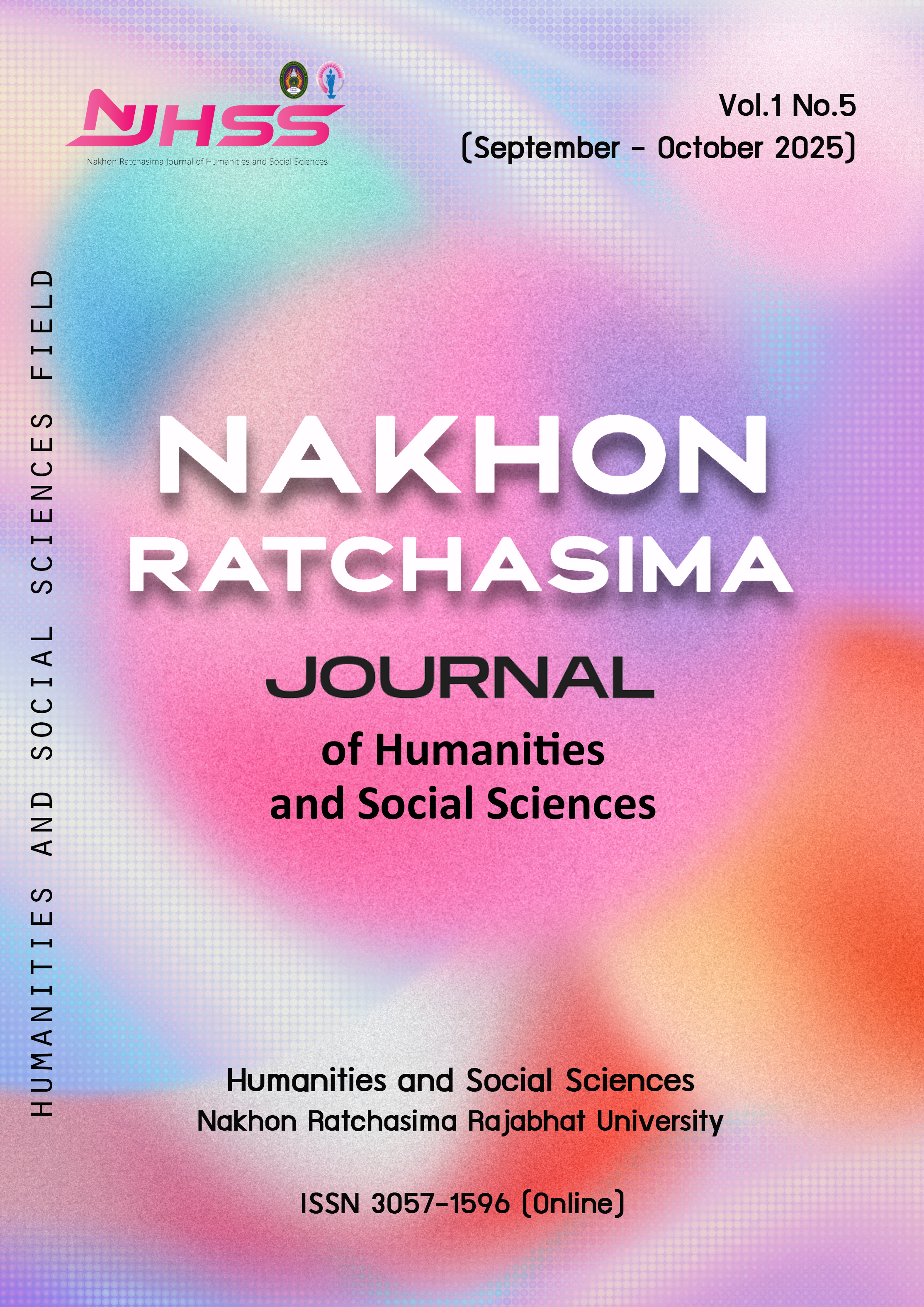Using CLIL to Develop Pre-Service Teachers’ Readiness for EMI through a Classroom-Based Perspective
Keywords:
CLIL, English-medium instruction, Pre-service teachers, Classroom -based reflection, SDG 4Abstract
This classroom-based reflective article examines how Content and Language Integrated Learning (CLIL) can develop pre-service teachers’ readiness for English-medium instruction (EMI) in a regional Thai university context. Drawing on the author’s nine-and-a-half years of bilingual primary teaching and subsequent instruction of an English for Teaching course at Nakhon Ratchasima Rajabhat University (NRRU), the study integrates practical accounts with learner feedback from two groups. Primary-level data were collected from 57 former students who studied English, science, and mathematics through English in a CLIL-based program, while highereducation data were gathered from course evaluations by 23 pre-service teachers. The findings reveal that CLIL-supported lessons promoted engagement, routine English use, and academic vocabulary retention among primary learners, although some found content learning in English challenging. At theuniversity level, pre-service teachers reported high satisfaction with scaffolding, active learning, and microteaching, leading to increased confidence and improved lesson design for EMI. The study highlights key challenges, such as aligning language and content objectives and sustaining motivation, whilerecommending CLIL as an effective strategy for bridging the policy-practice gap andadvancing Sustainable Development Goal 4 on equitable education.
References
Charunsri, K., & Sripicharn, P. (2023). Effects of Content and Language Integrated Learning (CLIL) training program on pre-service teachers’ knowledge of CLIL approach, CLIL material design, and CLIL teaching. International Journal of Education and Literacy Studies, 11(4), 3–12.
Coyle, D., Hood, P., & Marsh, D. (2010). CLIL: Content and language integrated learning. Cambridge University Press.
Galloway, N., Kriukow, J., & Numajiri, T. (2017). Internationalisation, higher education and the growing demand for English: An investigation into the English medium of instruction (EMI) movement in China and Japan. British Council.
Lasagabaster, D. (2011). English achievement and student motivation in CLIL and EFL settings. Innovation in Language Learning and Teaching, 5(1), 3–18.
Macaro, E. (2018). English medium instruction: Content and language in policy and practice. Oxford University Press.
Mehisto, P., Marsh, D., & Frigols, M. J. (2008). Uncovering CLIL: Content and language integrated learning in bilingual and multilingual education. Macmillan Education.
Prabjandee, D., & Fang, F. (2021). Developing a conceptual framework for English-medium instruction teacher education in Thailand: Addressing equity, inclusivity, and sustainability. Innovation in Language Learning and Teaching, 15(2), 168–182.
Prabjandee, D., & Nilpirom, P. (2022). Pedagogy in English-Medium Instruction (EMI): Some recommendations for EMI teachers. rEFLections, 29(2), 421–434.
Ruiz-Cecilia, R., Medina-Sánchez, L., & Rodríguez-García, A. M. (2023). Teaching and learning of mathematics through CLIL, CBI, or EMI—A systematic literature review. Mathematics, 11(6), 1347.
Suksakorn, P. (2020). English medium instruction policy in Thai universities: Practices and challenges. Journal of Language Teaching and Research, 11(5), 655–662.
Tachaiyaphum, P., & Sukying, A. (2017). EFL pre-service teachers’ perceptions of CLIL implementation in a Thai university. Asian Education Studies, 2(4), 44–56.
UNESCO. (2017). Education for sustainable development goals: Learning objectives. UNESCO Publishing.
Wichairat, N. (2019). Implementing CLIL in a Thai university: Challenges and opportunities. LEARN Journal: Language Education and Acquisition Research Network, 12(1), 113–128.
Downloads
Published
How to Cite
Issue
Section
License
Copyright (c) 2025 Nakhon Ratchasima Journal of Humanities and Social Sciences

This work is licensed under a Creative Commons Attribution-NonCommercial-NoDerivatives 4.0 International License.



